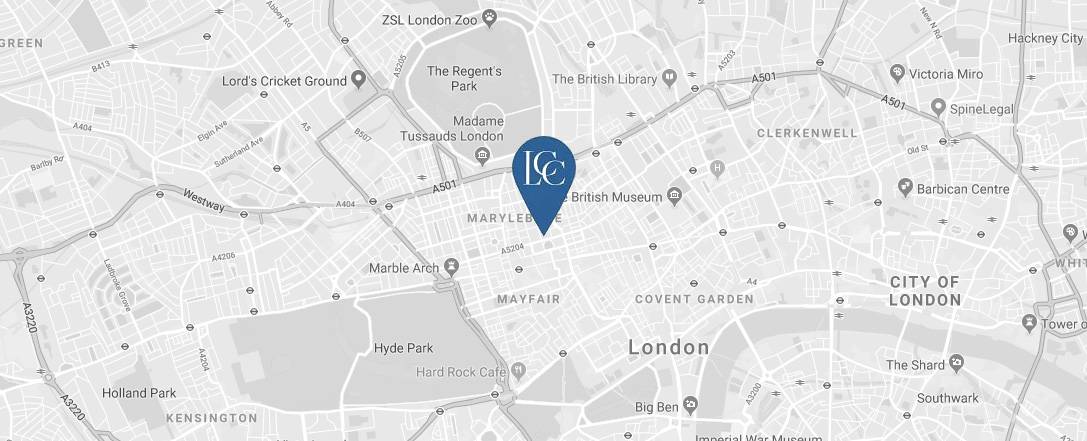Psoriasis, Eczema and other dermatitis
The skin can succumb to a range of conditions such as psoriasis, eczema and dermatitis and, whether they be mild or more severe, these conditions can cause discomfort, embarrassment and even infection, if not treated properly.
Psoriasis is a common chronic inflammatory skin condition affecting 1 in 50 people. It occurs equally in men and women. It can appear at any age. Psoriasis is a long-term condition which may come and go throughout your lifetime.
It causes red, flaky, crusty patches of skin covered with silvery scales. These patches normally appear on your elbows, knees, scalp and lower back, but can appear anywhere on your body. Most people are only affected with small patches. In some cases, the patches can be itchy or sore. It can also affect the nails and the joint.
Psoriasis is multifactorial. It is a systemic condition, which means it affects the body from inside. It is classified as an immune-mediated inflammatory disease. It is not contagious, which means that one person cannot pass psoriasis to another.
Is Psoriasis is curable or not?
Even though there’s no cure, many treatments exist to ease the symptoms of psoriasis.
Where does Psoriasis usually start?
Psoriasis can occur on the skin anywhere on the body. It most often develops on the knees, elbows, or scalp.
What does the start of psoriasis look like?
Psoriasis usually appears as red or pink plaques of raised, thick, scaly skin. However, it can also appear as small, flat bumps or large, thick plaques. It most commonly affects the skin on the elbows, knees, and scalp, though it can appear anywhere on the body.
Is Psoriasis caused by stress?
Flare-ups often occur when certain triggers start the psoriasis process. The most common is stress. Mental stress causes the body to release chemicals that boost the inflammatory response. Scientists suspect this is the mechanism for stress-induced psoriasis flare-ups.
An increase in stress levels or living with ongoing, chronic stress can cause your psoriasis to flare up. Psoriasis itself can also be a source of stress. Cold and dry weather. When the temperature drops and the air gets dry, you may see your symptoms of psoriasis worsen.
Can you leave psoriasis untreated?
Untreated psoriasis can lead to plaques that continue to build and spread. These can be quite painful, and the itching can be severe. Uncontrolled plaques can become infected and cause scars.
What is the best doctor to treat psoriasis?
Anyone living with psoriasis should see a dermatologist. It’s especially important to find a dermatologist who has experience treating psoriasis if: your disease is flaring, or your symptoms are worsening.
Eczema or dermatitis
Eczema is sometimes called dermatitis which means inflammation of the skin. It results from a variety of different causes and has various patterns. It affects about one in every five people at some time in their lives.
There are different types of eczema. The most common type is atopic eczema.
Atopic eczema is more common in children, often developing before their first birthday. But it may also develop for the first time in adults. It can present as an acute or Chronic eczema. Acute eczema refers to a rapidly evolving red rash which may be blistered and swollen. Chronic eczema refers to a longstanding irritable area.
Atopic eczema is usually a long-term (chronic) condition, although it can improve significantly, or even clear completely, in some children as they get older.
Contact Dermatitis
There are two types of contact dermatitis: Irritant and Allergic contact dermatitis. These types of eczema can develop after something damages the skin. These include chemicals and frequent hand washing.
Irritant contact dermatitis can start after touching a strong irritant one time or by coming into contact with the irritating substance repeatedly. Allergic contact dermatitis happens after a person exposed to an allergy-triggering substance, such as: Nickel, Cosmetics, Poison ivy.
Seborrheic Dermatitis
This type of eczema at times presents as dandruff. Seborrheic dermatitis causes skin to fall off in flakes. In infants, it affects the scalp. In adults, it also often affects these areas: eyebrows, sides of the nose, area behind the ears, groin, and centre of chest.
The condition may be due to an overgrowth of a type of yeast that normally lives in these areas, as well as an overgrowth and rapid shedding of skin cells. It may be especially hard to treat in people whose immune systems are not working properly.
Dyshidrotic Dermatitis
This type of eczema affects the hands and feet. The first symptom may be severe itching. Blisters may then appear, which give way a few weeks later to scaly patches. Sometimes deep cracks can appear on the hands or fingers. This type of eczema may become chronic and painful.
Discoid Dermatitis
Also called Nummular dermatitis, it causes coin-shaped red marks. The marks appear most often on the: Legs, backs of the hands, forearms, back and hips. Despite being localised, this type of eczema can be very itchy and refractory to the treatments.
Stasis Dermatitis
This type of eczema can develop in people when the veins in their lower legs do not properly return blood to their heart. It can start quickly, causing weeping and crusting of the skin. Over time, this type of eczema can cause the skin to develop brown stains.
What is the main cause of eczema?
The exact cause of eczema is unknown. It is caused due to an overactive immune system that responds aggressively when exposed to triggers or substance outside or inside the body, responds by producing inflammation. It is this inflammation that causes the red, itchy and painful skin symptoms common to most types of eczema.
Certain conditions such as asthma are seen in many patients with eczema. There are different types of eczema, and they tend to have different triggers
Why did I suddenly get eczema?
When your skin gets too dry, it can easily become brittle, scaly, rough or tight, which can lead to an eczema flare-up. Everyday products and even natural substances can cause your skin to burn and itch, or become dry and red.
Can eczema go away on its own?
The length of a flare-up will depend on what type of eczema you have, as well as the severity of the flare. With proper treatment, flare-ups may last one to three weeks, Chronic eczema such as atopic dermatitis can go into remission with the help of a good preventative treatment plan.
How is eczema treated?
Mainstay of eczema treatment includes two things: Emollients – cleansers and moisturisers designed for very dry, sensitive skin and Topical corticosteroids – medicated creams and ointments applied directly to affected areas.
If you have atopic eczema you should apply emollients to your skin every day, and only apply topical corticosteroids when you’re experiencing a flare-up.
Other types of dermatitis are usually approached in similar ways, for example, by applying medicated treatments and moisturisers to the affected areas of skin. In some cases, these treatments will not be enough to manage symptoms, and you may require a different type of specialised treatment.
What are the treatments for contact dermatitis?
Treatments for irritant contact dermatitis include: Steroid and other medications, moisturizers for the skin. Treatments for contact dermatitis from allergic triggers also include steroid drugs. These are rubbed on the skin or taken as a pill.
For either type of contact dermatitis, antibiotics may be necessary. Avoiding future contact with the irritant or allergy trigger is also important. Wearing gloves can help protect the skin on the hands, which are often affected. Read more on treatments for contact dermatitis.
What causes seborrheic dermatitis flare ups?
Common triggers for seborrheic dermatitis include stress, hormonal changes or illness. More harsh detergents, solvents, chemicals and soaps also can trigger and worsen the condition.
Does seborrheic dermatitis go away?
Seborrheic dermatitis may go away without treatment. Or you may need many repeated treatments before the symptoms go away. In teenagers and adults, seborrheic dermatitis usually does not disappear on its own without treatment.
How is seborrheic dermatitis treated?
Type of treatment depends on the area of the body that is affected and how severe your condition is. The goal of treatment is to reduce the visible signs of seborrheic dermatitis and itching and redness. Topical treatment includes include topical antifungals, calcineurin inhibitors and corticosteroids. During flare ups, you may need to use a combination of these treatments. Ongoing maintenance treatment is often needed to control and prevent the flares.
If you live with seborrhoeic dermatitis, which affects the scalp, the primary treatment for your condition will be medicated shampoos. Because seborrhoeic dermatitis is thought to be caused by a reaction to yeast living on the skin. Though they are called shampoos, these products should not be used to clean the hair. They should be applied as a treatment, and typically left on for five to 10 minutes before being washed off.
At The London Cosmetic Clinic in Harley Street, we understand the needs of our patients who experience these various skin conditions, whether as a one off, or a chronic problem and offer clinically-proven, safe and effective treatments to help our patients lead normal lives, without discomfort, embarrassment or emotional stress.
Check Our Pricelist
Psoriasis, Eczema and other dermatitis Treatments
Topical treatments for Psoriasis, Eczema and Other Forms of Dermatitis
If your condition is severe or other treatments have not worked, you may be prescribed systemic treatments by our specialists. Systemic treatments work throughout the entire body, therefore, they can be highly effective in treating inflammatory conditions. However, they all have benefits and risks with potentially side effects.
At The London Cosmetic Clinic we offer a range of systemic treatments for a number of skin conditions which help to restore the skin and help ease symptoms such as itching, pain, redness and dryness of the skin. Different forms of corticosteroids are the most common forms of medication for the treatment of psoriasis, eczema and dermatitis and are available as a tablet or injection. We will continually monitor your progress throughout any treatment plan, so that we can ensure that the course of treatment is suitable and effective for your individual needs and requirements.
View Frequently Asked Questions
frequently asked questions
Before a treatment for any skin condition can commence, here at The London Cosmetic Clinic, we will request that you attend a no obligation consultation, skin analysis and medical history check, so that we can determine which treatments will be both suitable and safe for your individual skin concerns, lifestyle and general health.
Systemic treatments for psoriasis, eczema and other forms of dermatitis
If your condition is severe or other treatments have not worked, you may be prescribed systemic treatments by our specialists. Systemic treatments work throughout the entire body, therefore, they can be highly effective in treating inflammatory conditions. However, they all have benefits and risks with potentially side effects.
At The London Cosmetic Clinic we offer a range of systemic treatments for a number of skin conditions which help to restore the skin and help ease symptoms such as itching, pain, redness and dryness of the skin. Different forms of corticosteroids are the most common forms of medication for the treatment of psoriasis, eczema and dermatitis and are available as a tablet or injection. We will continually monitor your progress throughout any treatment plan, so that we can ensure that the course of treatment is suitable and effective for your individual needs and requirements.
View Frequently Asked Questions
frequently asked questions
Before a treatment for any skin condition can commence, here at The London Cosmetic Clinic, we will request that you attend a no obligation consultation, skin analysis and medical history check, so that we can determine which treatments will be both suitable and safe for your individual skin concerns, lifestyle and general health.




